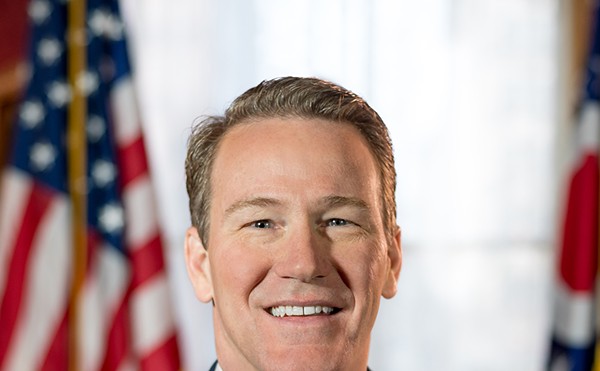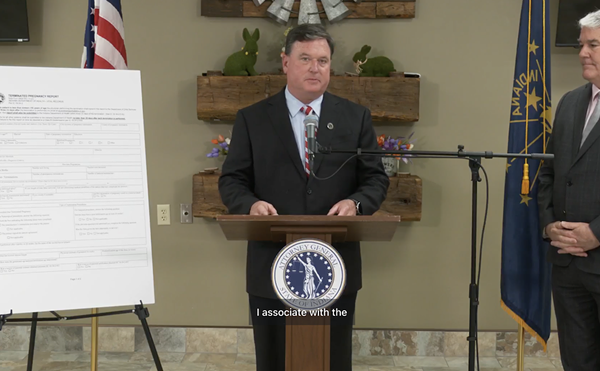It took the balcony, two overflow rooms and the hall outside a standing-room-only Cincinnati City Council Chambers to hold all the people who turned out to say what they think of Mayor Charlie Luken's proposed 2005/2006 budget.
In fact, as the clock struck 1 p.m., when the Finance Committee was set to meet, the line of citizens still waiting to pass City Hall's security checkpoint stretched to Plum Street.
The overwhelming majority of speakers during the Dec. 6 public hearing turned out to protest Luken's plan to cut the city's entire $4.8 million human services budget. Many of them wore "I Support Human Services" stickers.
While some activists agitated on behalf of multiple organizations or simply all of them — for more than an hour a young man in a Reds ball cap held high a sign saying, "There are other ways to find the money/Don't cut social services" — most of the signs held aloft pleaded for the YWCA's Battered Women's Shelter.
"Twelve women died of abuse this year," said Cynthia Booth, chair of the YWCA board of directors.
Continued funding for the only battered women's shelter and batterer's treatment program in Hamilton County means "the difference between life and death in our community," she said.
One woman said she had to travel 150 miles to escape her abuser, spend five days in the hospital and withhold her location from family and friends because "he would find me. Without that shelter, I would have been dead."
Instead, 25 days later she's gainfully employed and apartment hunting.
"It's a life without fear," she said.
Ann McDonald, executive director of the Rape Crisis and Abuse Center, wondered aloud how to fit the city's cuts into her budget: "Tell the rape victim that we can't meet her at the hospital?" Or that she can't meet one-on-one to talk? Or cut prevention programs, eliminating community training about how to work sensitively with rape victims?
Worse, all those services fulfill other grant requirements, so cutting any of them jeopardizes funding from other sources, McDonald said.
A young woman who was raped in February recounted in a shaking voice how Rape Crisis and Abuse Center advocates helped her go to the police, get a restraining order, press charges and "ensure that a violent criminal will be prosecuted to the full extent of the law."
Others spoke on behalf of the FreeStore/FoodBank, the Greater Cincinnati Coalition for the Homeless, AmeriCorps' Public Allies, Caracole, the Center for Peace Education, the Center for Independent Living Options, AIDS Volunteers of Cincinnati, the Over-the-Rhine Senior Center and many more. Two hours into the hearing, half of those who'd signed up had yet to speak.
A recurring theme was the city's large return on its relatively small investment. Nicholas Nienaber of Public Allies said his organization trains hundreds of young people to go out and organize thousands of volunteers.
"Think about the number of people here in this room, the number of people in the hallway," he said. "We are all here to urge you to be wise and judicious with the budget. None of us in this room would like to switch places with you and make those decisions for you, but all of us here would like to say, 'Please be careful with how you use your money.' "
Though e-mails had circulated in the arts community urging advocates to don green and speak out, only a handful took the microphone. Somehow 50 percent cuts to the city's arts funding and a successful fiber conference hosted by the Weaver's Guild of Greater Cincinnati in 2000 paled in that room.
All The News That Fits: Leads, entrails and tales we couldn't get to.





